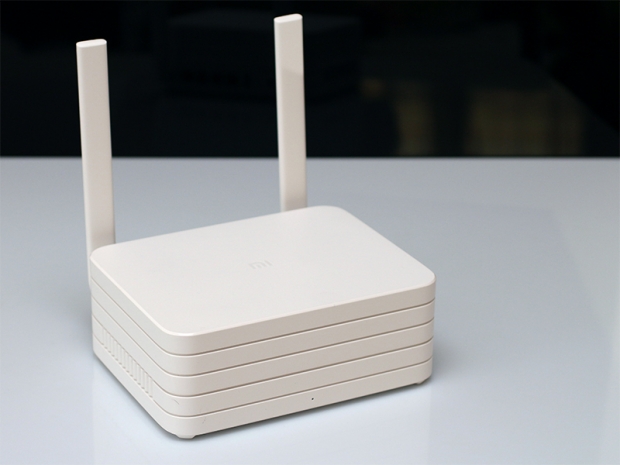Index
Design and Build Quality
At first, we were surprised with the weight of the device – 1264 grams, the weight of an ultraportable notebook, or two 10-inch tablets! This thing feels heavy and it is built like a tank. Of course, it has to be on the heavy side, as it has a 3.5-inch 1TB hard drive under the bonnet, backed by an active cooling system.

We were expecting a substantial device, but still, we were surprised. The finish looks and feels premium, like something you'd find on a smartphone or mini PC.

The front side features a single RGB LED that shows the status of the device according to its color: red, yellow or blue.
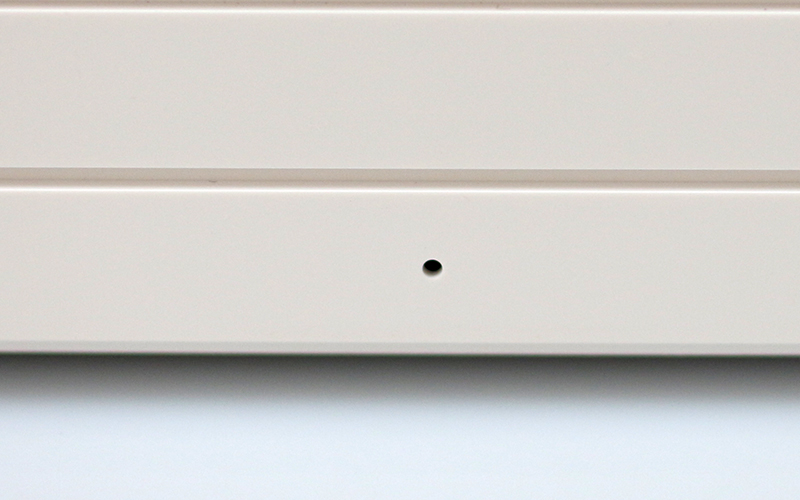
All the connectors are located at the back and everything is laid out logically. The router relies on 12V DC power, and the DC port is flanked by the power and reset buttons.
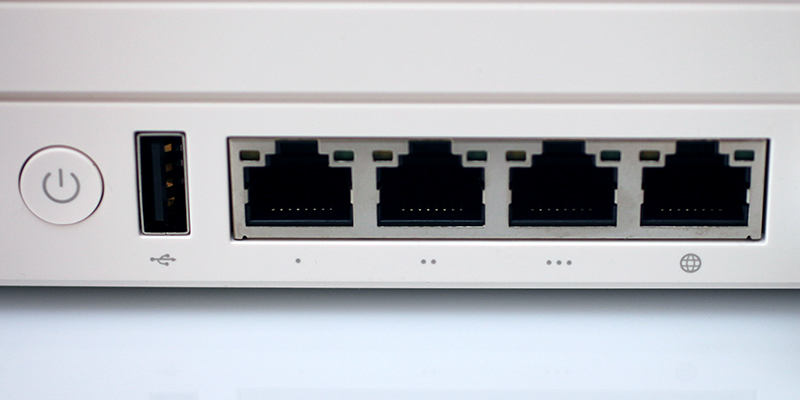
Moving right, you’ll find a USB port, three LAN ports and the WAN port.
We have only one complaint about the layout – we are accustomed to the WAN port being colored differently than the LAN ports, Xiaomi could have highlighted the WAN port in a different color.
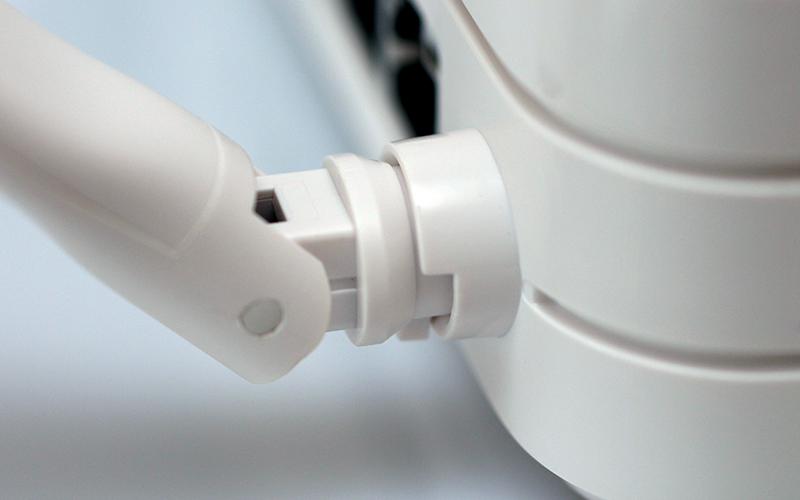
The antennas are located on the sides, as you would expect.

The internals are also well thought through, as this device sports various internal interference shields and an active air cooling system that wouldn’t look out of place on a graphics card.
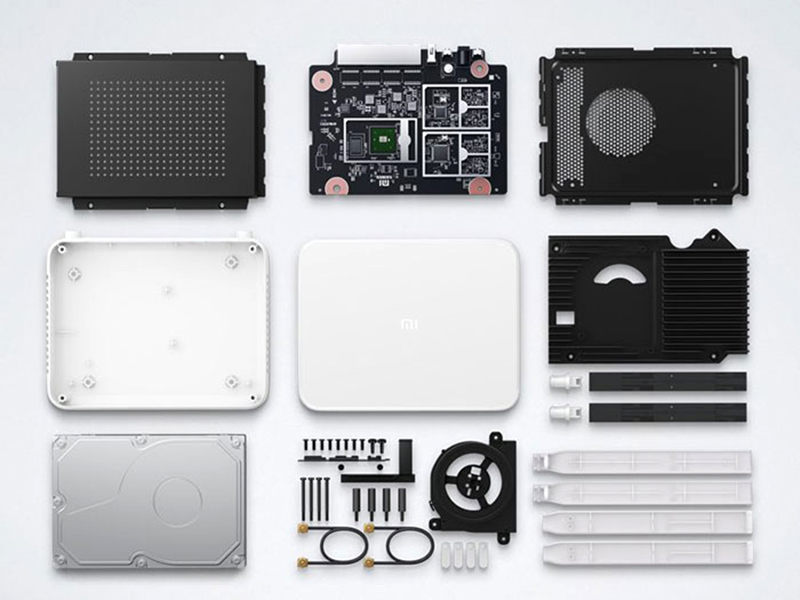
It's basically a blower-fan design, scooping up fresh air on the right and pushing it out through the exaust vents on the left.

The cooler stays inaudible at all times, which is good if you plan to place the router in your living room or office.
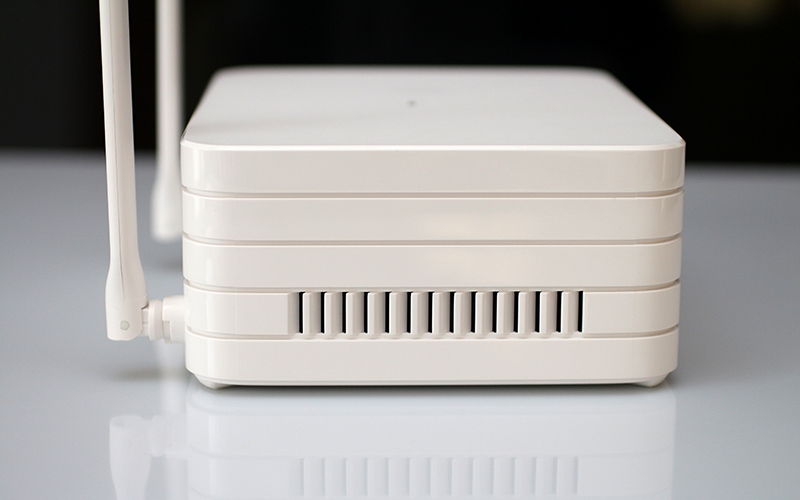
Another welcome feature is the use of two external PCB antennas, which help improve the range and signal coverage. Also, this router features smart signal tracking technology – beamforming – as implemented in the 802.11ac standard.


